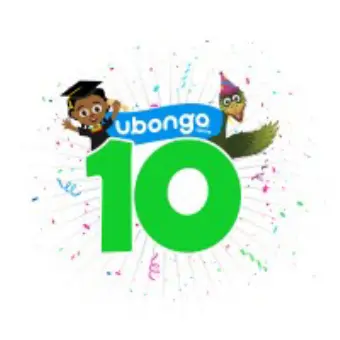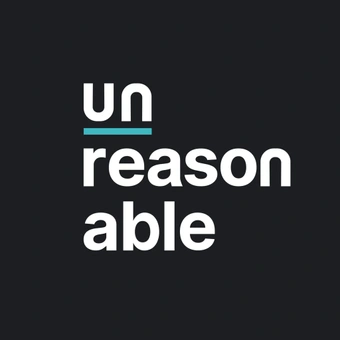Terms of Reference: Impact Evaluation of Ubongo’s Partnership Distribution Model on Children’s STEM and SEL Outcomes

Ubongo
- Evaluating Local Delivery for Last-Mile Learning: STEM and SEL Outcomes from Ubongo’s Tanzania Partnership Distribution Model
Client
Ubongo International: www.ubongo.org
Requesting Team (s): Education and Research
Unit: Monitoring and Evaluation
Type: Fidelity, Baseline, and Longitudinal Impact on Children’s STEM and SEL Outcomes in Tanzania (2026–2027)
Required: Consultancy Firm or Institution or Team of Consultants
Location : Tanzania (Multiple locations including urban, peri-urban, and rural communities)
Duration : 12 months (October 2025 to October 2026)
Level of Effort: Estimated 60–75 days
2.Introduction
Ubongo will launch Season 7 of Ubongo Kids (UKS7) in December 2025, featuring a spiraled curriculum designed to strengthen STEM (Science, Technology, Engineering, and Mathematics) and Social-Emotional Learning (SEL) for children aged 6–12. To evaluate the effectiveness of its community-partner distribution model, Ubongo will conduct a staged impact study in Tanzania, assessing both short- and long-term learning outcomes through implementation fidelity and longitudinal tracking. While earlier studies highlighted Ubongo’s potential via broadcast, they offered limited evidence on STEM—particularly—and SEL impacts when delivered through community partners or across diverse child populations. With Season 7’s curriculum shift, a more rigorous evaluation approach is both necessary and timely.
3. Purpose
To generate early insights into the fidelity and baseline STEM/SEL outcomes of Ubongo’s community-partner distribution model using standardized and validated measurement tools, and to lay the foundation for a longitudinal impact evaluation that will assess learning gains over time.
4. Specific Objectives:
- Establish Baseline STEM and SEL Outcomes
- Assess Implementation Fidelity and Operational Drivers
- Generate Longitudinal Impact Evidence
- Produce Scalable, Evidence-Based Recommendations:
5. Scope of Work and Evaluation Timeline
Below is the proposed Scope of Work (SoW) for a staged evaluation plan running for 12 months starting October 2025
Phase 0: Preparation & Setup
Oct–Dec 2025
Key Activities: Select firm, inception, ethical approvals, tool development & piloting
Purpose: Establish study design and operational readiness
Outputs/Deliverables: Inception report, validated tools, ethical clearance
Phase 1: Fidelity + Baseline Measurement
Jan–Mar 2026
Key Activities: Baseline STEM/SEL data collection, fidelity tracking during rollout
Purpose: Assess initial learning levels and implementation quality
Outputs/Deliverables:Clean baseline dataset, fidelity logs, validation presentation, rollout report
Phase 2: Continued Monitoring & Qualitative Insights
Apr–Sep 2026
Key Activities: Ongoing fidelity monitoring, qualitative interviews, partner feedback
Purpose: Understand delivery context and operational challenges
Outputs/Deliverables: Midline fidelity report, validation summary, qualitative synthesis
Phase 3:
Endline + Longitudinal Impact Evaluation Study
Jan–Mar 2027 (prep in late 2026)
Key Activities: Endline STEM/SEL data, behavioral outcomes and retention, cost-effectiveness, dissemination
Purpose: Measure long-term impact and retention
Outputs/Deliverables: Longitudinal dataset, impact report, policy brief, Dissemination webinar / stakeholder presentation, Recommendations Memo with scale-up strategy
6. Research Questions
Key evaluation questions include: What measurable STEM and SEL gains are observed among children exposed to UKS7 via the partner model? How does fidelity vary across different community settings? What contextual factors—such as caregiver involvement, media access, or cultural relevance—affect learning outcomes?
7. Methodology / Approach
Applicants are expected to propose a robust, context-sensitive, and practical mixed-methods evaluation design. This should integrate quantitative tools—such as STEM tests and SEL rubrics—with qualitative insights from caregivers, educators, and community partners. The study will sample around 600 children across varied settings, including Play Clubs, urban schools, and refugee communities. The selected firm will co-develop and refine the methodology in close collaboration with Ubongo’s MEL and Education teams, ensuring it meets both technical standards and the realities of low-resource environments. Applicants must ensure ethical approval, informed consent, child protection safeguards, secure data handling, and trained enumerators—all in line with Ubongo’s child safety standards.
8. Budget:
Ubongo expects the applicants to propose a requisite budget suitable for data collection in an East African context and follows the structure below:
- Phases 1–2 focus solely on implementation fidelity and baseline STEM/SEL measurement, with monitoring embedded during rollout. This is to be implemented in 2026 but preparations and research design must be completed by December 2025.
- Phase 3- impact evaluation—including endline data collection, analysis, and longitudinal follow-up—, which we plan to start preparing for in late 2026 and implement in 2027 and contingent on performance and availability
Note: Ubongo will cover the cost of the convening, enumerator training, travel/logistics, partner incentives, data analysis, and reporting.
9. Profile of the Ideal Consultancy Firm / Research Institution/Team of Consultants
Ubongo seeks to engage a highly qualified research consultancy firm or academic institution with a strong track record in edutainment research, learning outcomes measurement, and mixed-methods impact studies in Sub-Saharan Africa. The selected entity will be responsible for leading the design and execution of a comprehensive impact evaluation and developing a standardized tool for measuring learning in STEM and Social-Emotional Learning (SEL) domains.
10.Experience and Qualifications
The assignment requires a registered consultancy firm, research organization, or academic institution with at least 5 years of proven experience in international development or education research, preferably in Sub-Saharan Africa. Applicants must demonstrate strong expertise in education evaluation and MEL, with a track record of large-scale, mixed-methods studies in foundational learning, particularly within children’s edutainment or informal learning settings. Prior experience in tool design, validation, and alignment with global frameworks (EGRA, IDELA, ASER), as well as STEM and SEL assessment in low-resource or humanitarian contexts, is essential.
The team must include a Principal Investigator (senior researcher, educationist and data analyst)), alongside specialists in learning assessment, field coordination, and enumerators. Proven capacity in participatory tool co-design and validation workshops, adherence to research ethics and child safeguarding protocols, and access to an Institutional Review Board (IRB) are required. Applicants should have operational presence or partnerships in East Africa (especially Tanzania), with demonstrated work in refugee or underserved settings. Strong networks with African universities, in-house data analysis capacity (STATA, R, SPSS, NVivo, Atlas.ti), and the ability to deliver high-quality, policy-relevant reports in English (Swahili an added advantage) are mandatory.
Qualified Pan African consultants and or firms are encouraged to apply.
11. Proposal Submission and deadlines.
Please submit:
- A technical proposal and work plan for all 3 phases (10 pages max)
- Financial proposal with budget breakdown for all 3 phases (in USD)
- 2 Copies of relevant previous works related to the evaluation
- CVs of team and other relevant key personnel. CVs should be 3 max for each team members
- A Reference from an Organization you have worked for.
Send to: phillip@ubongo.org with copy salma@ubongo.org
Deadline for submission: 19th September 2025
